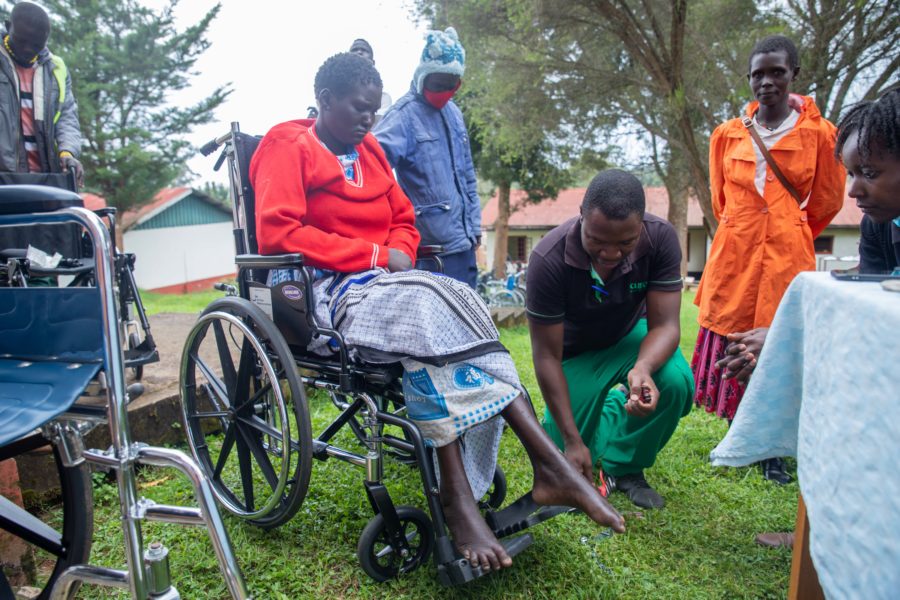Empowering Mobility in Kenya
By Heidi Isaac on Wednesday, November 18, 2020 at 3:40 amIn Kenya, most people living with disabilities depend on mobility devices. Unfortunately, wheelchairs are not easy to come by. A good, functional wheelchair costs approximately $100 minimum. With over 15 million Kenyans living below $2 a day, most can not afford a wheelchair. These families prefer lifting the disabled person and placing them on a chair or on the ground, and that person will rarely move from that spot since assistance is needed. This renders people with disabilities fully dependent on someone else. Imagine if the breadwinner in a family is in an accident and paralyzed. Automatically, the family is in trouble – trouble to provide for themselves and trouble with the kids getting a proper education that will help them succeed and prosper.
Wheelchairs are common with adults who have suffered an injury or had an accident at some point in their lives. On the other hand, children who need wheelchairs usually are born with a condition that limits their mobility, like cerebral palsy. In most cases, other than physiotherapy and sometimes surgery, there is nothing much that can be done to help these children to be more mobile. Children who present with some mild forms of cerebral palsy are in a position to go to school, find a career, and provide for their families when they are adults. But due to the lack of resources, like a wheelchair, they never go to school, and the ripple effect is devastating.
In the home, families often don’t understand the conditions their children are born with, and more often than not, neglect the child. These children grow up feeling that they are worthless. It might seem simple to just take the child to school, but many families don’t want to commit to helping that child. To those families, the effort seems like aiding a lost cause. We can help by providing these children with a wheelchair to help them move around, help out at home, and go to school. This way, we meet their needs, empower them to live better lives and brighten their future.

CURE believes that everyone deserves an equal chance in life. This is why every time a child with cerebral palsy comes to CURE Kenya, all avenues to help such a child are explored. Sometimes we meet children who live far from the hospital and cannot afford to come to CURE Kenya every week for physiotherapy or reviews. We provide these children with wheelchairs, and we often organize mobile clinics where wheelchairs are checked and serviced so they can continue to function properly.
Over the years, CURE has had a long partnership with Living With Hope, an organization that helps provide wheelchairs and other assistive devices to empower people living with disabilities. We have a long list of both children and adults who still need wheelchairs. A couple of weeks ago, CURE Kenya went back to West Pokot to deliver wheelchairs that were fitted a few months back and it was encouraging to see people getting help. This will really transform how these adults and children move from one point to another. The adults will be able to do some work with their hands, like tailoring and selling in shops while the children will be able to attend school and get an education. At CURE, we want to improve the lives of our patients and community members not only through pediatric surgeries but also by providing the assistance they need for long-term mobility.
Original story written by Elivs Lemaiyan from CURE.org
Related Articles
- Mobile Clinics Bring Ministry to the Margins
- New Surgical Center Breaks Ground at CURE Uganda
- Surgery Straightened Megertu’s Feet and Helped Other Children in Need
- CURE’s First Medical Director Given Lifetime Achievement Award
- The Doctor Is In: Dr. Moyo’s Live Webinar on Transforming Children with Clubfoot
- Expecting a Blessing: After Years of Waiting, Evance Receives Clubfoot Surgery
